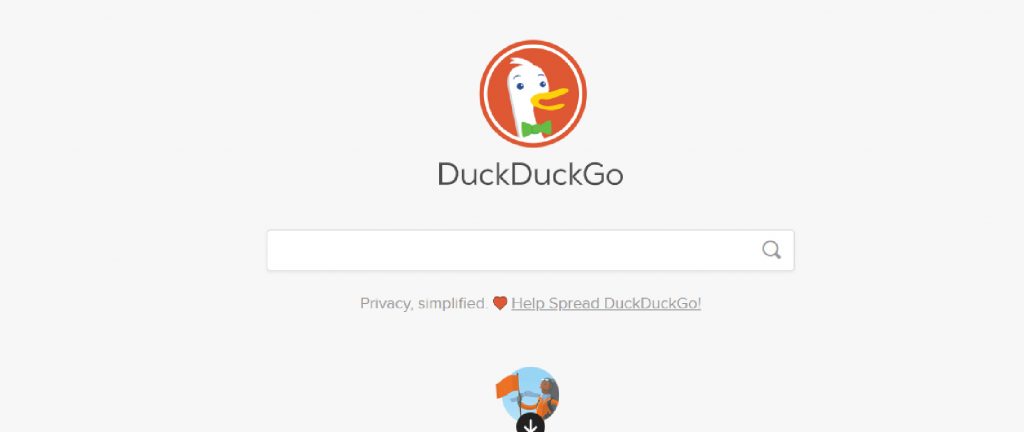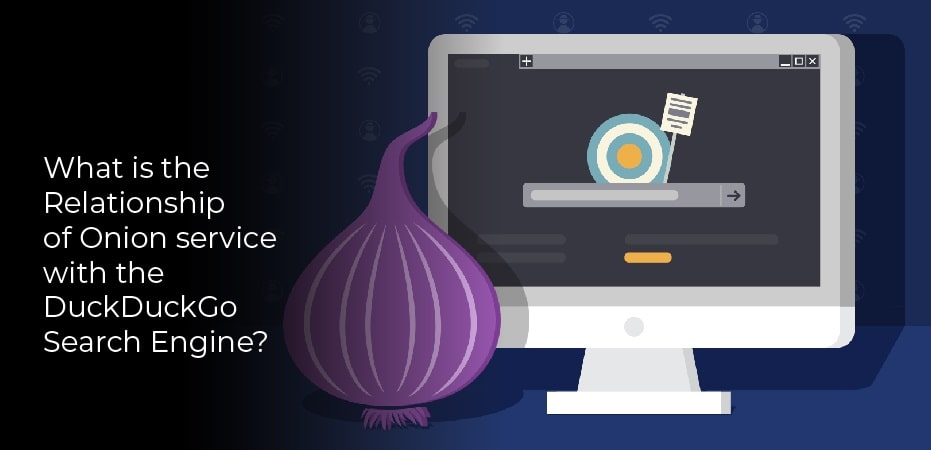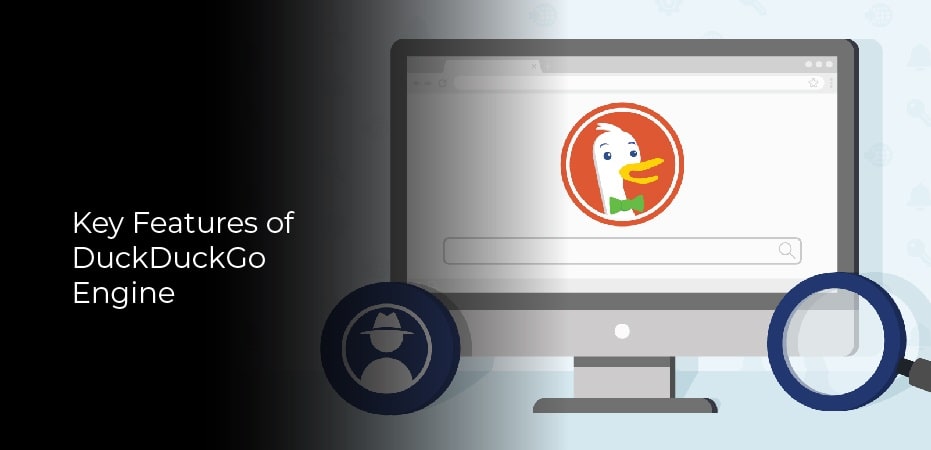DuckDuckGo Review: If you’re considering switching to a private search engine, you might be wondering if DuckDuckGo is right for you. This review will cover how the service keeps your data private and does not display targeted ads. This search engine also creates stronger passwords and prevents data collection.
DuckDuckGo has been updated many times, and its CEO has announced a plan to censor Russian disinformation websites. Many private search engines also provide browser extensions, including Chrome and Firefox. While DDG is not the only private search engine on the web, it is a great alternative to Google and Firefox.
Introduction of DuckDuckGo Search Engine
DuckDuckGo is a private search service devoted to promoting privacy on the Internet. While the private search engine does a good job of this, there’s one issue that raises privacy concerns. Your search terms are displayed in plain text in your browser history.
With increased privacy protections and more features, DDG has become a formidable competitor to Google. Founded in 2008, DuckDuckGo claims never to store personal information or share your data with third parties. With a user rating of 4.8 on Google Play and Apple’s App Store, DDG is a good choice for anyone who wants to protect their privacy online. Here is the interface image of DuckDuckGo search engine.

The privacy protections of DDG are based on the concept that search engines are responsible for sharing tiny data with websites. This data, along with cookies and browsing history, provides search engines with a sense of a user’s preferences. With DuckDuckGo, you can avoid this problem by viewing websites in encrypted form.
While DuckDuckGo uses affiliate partnerships, it does not exchange personally identifiable information. The privacy-friendly search engine gives similar search results to Google but doesn’t engage in aggressive online tracking. Its affiliate shopping options are another source of revenue. It uses this income to fund its development efforts.
What is the Relationship of Onion service with the DuckDuckGo Search Engine?

DuckDuckgo privacy is close to the deep links, which means the onion router. In 2016, After difficulties with the Disconnect service, TOR switched to DDG as its default browser. A longtime supporter of TOR, DDG sees it as a kindred spirit in the pursuit of online privacy.
Our DuckDuckGo review noted earlier that DDG offers a “Hidden” version that uses a Tor exit enclave. Therefore, the links are very strong, which indicates how serious Weinberg and his staff are about keeping DDG’s privacy policy.
Is DuckDuckGo Collect User Data?
DuckDuckGo is a privacy-friendly search engine that does not collect user data. It doesn’t store browsing history, offers no advertising, and doesn’t track your every move. It also doesn’t offer any auto-suggest function. This means that you have a clean slate to search with.
The company claims that its privacy measures are aimed at protecting users from third-party trackers, but we have seen instances where DuckDuckGo tracked users through Microsoft platforms. Obviously, privacy is relative, and we are all tracked to some degree, but it’s still unsettling to know that your browsing history is being tracked just to get your ads right.
DuckDuckGo has an intuitive interface that looks a lot like Google. It even uses some of Google’s design elements but doesn’t break search results into multiple pages. Instead, you can scroll endlessly to see more results. This makes DDG a more accessible and convenient search experience.
How Does DuckDuckGo Work?

IP leakage is a key difference between how DuckDuckgo works and how Google works. If you search for something on Google and click on a link, Google will send the search terms you used to get there to that site. Your IP address will also typically be included – allowing companies (and Google more than anyone) to track your web movements.
DuckDuckgo doesn’t do that, and the search engine still delivers a list of accessible links. These links don’t pass IP address information to the target site when you click on them. As a result, although the site can identify your IP address, it doesn’t know how you got there or any other information about you.
When visiting unprotected sites, DDG also uses encryption to provide additional security. Additionally, Tor proxy allows searches to be routed via an even deeper level of encryption.
Unlike Google, DuckDuckgo doesn’t build in-depth profiles for each user regarding ads. However, ads are instead associated with keywords you enter, and Marketers might find that blunter, but ordinary web users may find that less intrusive.
Key Features of DuckDuckGo Engine

The search engine DuckDuckGo has developed has several advantages over other search engines. The privacy features of the search engine DDG are a huge plus. The company uses an open-source platform called Instant Answers to collect information and crowdsourced sites like Wikipedia to produce search results.
Furthermore, the platform also uses its web crawling to produce results for popular search engines. Additionally, you can adjust the following settings:
- Auto-complete
- Language
- Opening links
- Region-specific searching
- Safe Search to omit adult material
- Scrolling
The appearance settings can also be tweaked, including alignment, colors, font, font size, page width, etc. When you do a lot of online searching, it’s nice to be able to customize your search engine results.
1. Bangs
Using Bangs (open in new tab), DuckDuckGo delivers search results from other websites, such as Amazon or Wikipedia. Suppose that you wanted to search for records on Amazon by entering “a! vinyl” – the a! tells DuckDuckGo what you want to search on the Amazon website. While DuckDuckGo can protect your privacy when you search on these other sites, your information will be subject to those other search engines’ privacy policies.
2. Privacy
DuckDuckGo touts itself as an extremely safe search engine that you can use without worrying about being tracked (opens in a new tab). They don’t store your personal information or follow you around with ads. According to the website, “We don’t track you. Ever.”
In addition to site encryption, DDG offers a variety of products. Furthermore, DuckDuckGo’s Privacy Grade allows you to see if a website can be trusted before and after it has been protected.
The privacy features are automatically enabled without any action on your part. You can use them all immediately after you start using DuckDuckGo because they’re all built-in. There are a few privacy settings you can change.
3. In Use
The “Add DuckDuckGo to Safari” buttons on their website were customized for the Safari browser (and tailored for Chrome (opens in a new tab) when I tried it in that browser). Finding and downloading the right version for my computer was no longer a mystery.
I received a pop-up prompt with instructions for setting DDG as my default search engine after clicking the button to add it. The process is super simple – on Safari, you just click the magnifying glass and select DuckDuckGo from the drop-down menu.
Downloading the app for Mac requires you to enable the features within your browser. It will guide you through the process. Even better, DDG opens the menus for you automatically without you having to go into your browser preferences.
Besides that, DuckDuckGo works similarly to any other search engine – you enter a word or phrase, hit Search, and it does the rest. However, the mobile app is especially pleasant to use. You can explore the app with the duck mascot popping up with chat bubbles, and it’s fast and smooth.
4. Platforms
DuckDuckgo has two options when you are going to use it:
- Browser Extension: To turn on a private search engine, you need to enable DDG as your default search engine in your browser.
- App: The app is worth downloading and installing if you want extra privacy. Using this, you will be blocked from tracking and connected to an encrypted website version.
5. Competitors
DuckDuckgo search engine result does not look good compared to Google searches. When we played around searching for similar keywords like “Beach boys albums,” the DDG had rich results but were mostly similar to the Google and yahoo that I saw on the pages.
DuckDuckGo Privacy Concern

Privacy is important to many people, and DuckDuckGo focuses on protecting the privacy of its users. Because DDG prioritizes privacy over quality, you can browse the web without worrying about your privacy. While it doesn’t provide personalized search results, it does provide the convenience of anonymous Search.
DuckDuckGo makes money through keyword advertising, affiliate commissions, and licensing fees for its tracker radar tool. It was founded in 2008 and has grown to become one of the world’s most popular search engines, processing over 3 billion monthly searches. DDG has more than doubled its user base in one month, thanks to the billboard.
It encrypts your traffic and hides your IP address. This makes it extremely difficult for sites to track your online activities. It also provides better security than most mainstream browsers, ensuring that no one can steal your identity and personal information.
DuckDuckGo has built a solid reputation in the private search market. It has an attractive design and offers an excellent user experience. While it is not a private search engine, it does make a great effort to protect your privacy.
Is DuckDuckGo Display Targeted Ads?
Unlike Google, DuckDuckGo does not display targeted ads. Instead, ads are displayed based on your search terms. These ads aren’t relevant to you, and they don’t know your previous searches. But you will still see many ads for products you might not need.
Despite its small search market share, DDG is huge in a particular population. It is estimated that the search engine has a market share of 1.00% in the US alone. It offers a huge audience, which advertisers can target with pay-per-click ads. But, while Google offers plenty of ads, these ads are meant to track your behavior and progress. However, DuckDuckGo only offers a few ads, and none tracks you.
Users can block certain websites and categories on DDG. Unlike Google, DuckDuckGo doesn’t store browsing data. It also blocks trackers. The privacy of your searches is important. It is estimated that 53% of organic search clicks go to the first page.
Other big tech companies make tons of money by targeting ads based on your browsing history. Google and Facebook have recently said they’ll stop tracking users’ personal information, but the practice remains. That’s why DDG doesn’t display targeted ads. Unlike Google and Facebook, the search engine doesn’t store your browsing history and prioritizes quality links instead of targeted ads.
DuckDuckGo Generates Stronger Passwords
A strong password can be difficult to create, but DuckDuckGo can help. Their password generator feature creates passwords with hashes, making them hard for hackers to crack. A good password is at least 8 characters long and contains several different characters. You can even change it to something longer if you’d like.
DuckDuckGo also offers an option to encode URLs. In order to do this, you’ll need to input the website URL and click the “encode URL” button. Then, DDG will suggest a password that is at least eight characters long. It’s even possible to create a password of up to 64 characters.
DuckDuckgo also has features like emoticon translations and a stopwatch. In addition, it has a built-in calendar that displays the month calendar when you search. There’s even an anagram solver built into its system. Whether you want to create a password for your email account or use it to log into your banking website, DDG can help you find the best password for the site.
FAQ’s
Q1: Is DuckDuckGo really a private browser?
Yes, DuckDuckGo prioritizes user privacy by not tracking or storing personal information. It provides a secure and anonymous search experience.
Q2: How does DuckDuckGo compare to other search engines?
DuckDuckGo differentiates itself by not collecting user data. It offers unbiased search results and provides enhanced privacy features like tracker blocking.
Q3: Can I use DuckDuckGo as my default search engine?
Absolutely! DuckDuckGo can be set as the default search engine in most web browsers. Ensuring your searches remain private and protected from third-party tracking.
Q4: Does Google Sunder Pichai own DuckDuckGo browser?
No, DuckDuckGo is not owned by Google. It is a private search engine created in 2008 by Gabriel Weinberg. This search engine is known for providing basic anonymity and not tracking your search history.
Q5: How does DuckDuckGo generate its revenue?
DuckDuckgo search engine is free to use, and the website generates its revenue on ad revenue but doesn’t sell your information for an advertisement to make money. Currently, every DuckDuckgo product is free to use, whether it is an app, extension, or anything.
Conclusion
DuckDuckGo is a popular search engine that focuses on privacy and security. You can use passwords on all your online accounts. Just make sure to keep them somewhere safe. You can even use them to find nearby attractions to visit. When using DDG, you’ll have stronger passwords, and your security is boosted.
While DuckDuckGo provides privacy for searches, it doesn’t protect you from other online threats. Other websites and social media platforms can track you, and cybercriminals can target you with social engineering attacks. Additionally, your search history is not encrypted, so your traffic can be intercepted.
